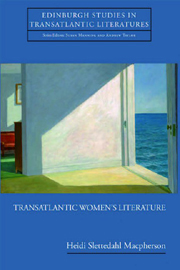Introduction: ‘No Region for Tourists and Women’
Published online by Cambridge University Press: 12 September 2012
Summary
As a woman I have no country. As a woman I want no country.
Virginia Woolf, Three Guineas (1938)The feminizing of the land is both a poetics of ambivalence and a politics of violence.
Anne McClintock, Imperial Leather (1995)Taken out of context, Woolf's famous pronouncement seems to suggest an ahistorical misalliance between women and nations. It also suggests that a woman's desire is disassociated from the land of her birth (or her adoption). Yet at the same time, as the second epigraph conversely suggests, women and nation have been frequently conflated, from how desirable land is described (virginal), to the feminine pronoun ‘she’ used to describe a country, to words that evoke a familial connection (mother country). After all, as Anne McClintock argues, ‘All nations depend upon powerful constructions of gender. Despite many nationalists' ideological investment in the idea of popular unity, nations have historically amounted to the sanctioned institutionalization of gender difference.’ Taken together, these contested viewpoints provide a starting point for discussions of transatlantic women's literature, since both reveal the impact that gender has upon the writing on/of nations.
Of course, Woolf was, in fact, protesting the way in which women were disenfranchised, rather than suggesting that women's desire didn't extend to the nation; if anything, she wished to extinguish a woman's unthinking patriotism. However, the frequency with which Woolf's famous lines are quoted out of context suggests that her words have resonance beyond their historical moment.
- Type
- Chapter
- Information
- Transatlantic Women's Literature , pp. 1 - 30Publisher: Edinburgh University PressPrint publication year: 2008



